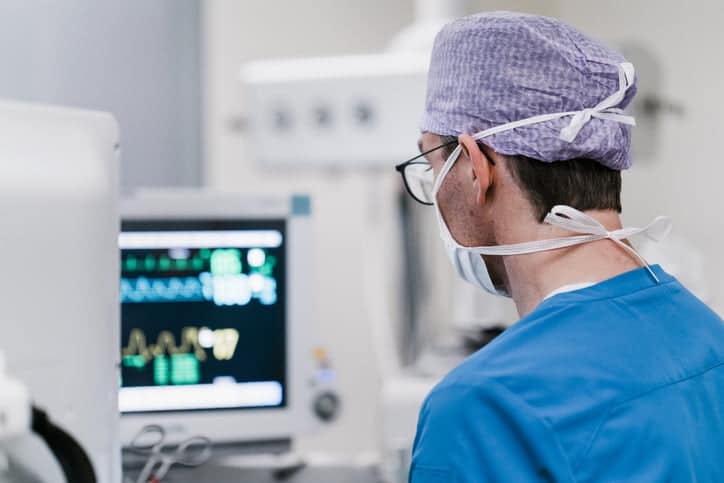8 Predictions for the Pharmaceutical Industry

Driven by changing trends, evolving diseases and innovation, the pharmaceutical industry rarely stands still. And never has this been truer than in 2021, a year in which the ongoing coronavirus pandemic continues to hold sway over the industry’s rapid pace of change.
But as the world continues to adjust and adapt to the pandemic, what changes are we likely to see within the pharmaceutical sector in the coming months? And how might these affect the supply, management and production of medicinal products here in the UK?
Here, we’re taking a prospective look forward at the future of pharma, with eight predictions of how the industry could change over the coming months and years.
1. Global Vaccine Capacity Will Expand
Before the coronavirus pandemic, the manufacturing, supply and distribution of vaccines were shared by a handful of global pharmaceutical companies. Since the virus emerged, however, there has already been an astronomic increase in vaccine production, with individual countries keen to attain autonomy over their supply.
Even in the wake of the pandemic, it’s likely that we’ll continue to see a growth in vaccine supply and manufacturing – and not just for COVID-19. With new vaccine supply chain infrastructure already in place, countries will be keen to make use of additional manufacturing and distribution capacity, aiding a localised rollout of other key vaccines.
2. Refrigeration Will Transform the Pharma Supply Chain
Since COVID-19 vaccines require complex refrigeration procedures for safe storage and delivery, it’s hoped the invention of new refrigeration models will revolutionise distribution within the pharmaceutical sector. Currently, some vaccines require deep-freeze temperatures for safe distribution, with efforts being made to develop new refrigeration methods that require warmer, less energy-intensive temperatures.
Looking ahead, the innovations in refrigeration driven by the coronavirus vaccine rollout could be of major benefit to pharmaceutical businesses. Milder-temperature distribution is cheaper, faster and less resource-intensive, meaning a reduction in cost and energy, and an increase in efficiency.

3. A Growth in Small-Scale Manufacturing
In a similar vein to the point discussed above, we’ll likely continue to see a growth in small-scale pharmaceutical manufacturing in the years ahead. As countries look to sure up their supply of essential medications and vaccines, this is likely to trigger a growing number of smaller pharma manufacturers, delivering supplies on a national as opposed to global scale.
In some areas of the pharmaceutical sector, we’re already seeing a move towards small-scale manufacturing. Disruptive start-up companies are challenging the status quo with innovations and pricing models, as well as modern supply chain management processes that provide greater efficiency and productivity than traditional infrastructures.
4. COVID Will Trigger Accelerated Innovation
Since coronavirus took hold in March 2020, the pharmaceutical industry has seen a remarkable increase in innovation. From testing equipment and hospital supplies to the vaccine itself, never before has a single industry experienced such a rapid response to a collective, shared problem.
In the future, it’s hoped the workflows, processes and fast-tracking used to accelerate the global response to the pandemic can be carried forward, leading to accelerated innovation in other key areas. From the treatment of cancer to the fight against dementia, speed of innovation will likely be a major trend in the post-pandemic world.
5. Immunity Will Become a Key Focus for Research and Development
While vaccines will always be necessary to fend off viruses, many experts in the pharmaceutical field see immunity as a major point of focus over the coming years. Since COVID-19, more research and development (R&D) than ever before has been spent exploring virology and immunity, to the point where some scientists believe that it may one day be possible to achieve full viral immunity within the general populace.
Of course, a careful balance is needed when it comes to research and development, and there’s no getting around the fact that, during the pandemic, R&D has slowed in other key areas – including oncology. In the future, it’s likely immunity will appear alongside other key areas of exploration.

6. Increased Threat from Cybercrime
Aside from new variants and ever-evolving diseases, cybercrime remains one of the greatest threats to the pharmaceutical industry. And as small-scale manufacturing and development come to the fore, it’s likely the risk from cybercrime will increase – with state-sponsored attacks designed to steal intellectual assets from pharma businesses overseas.
As such, it’s critical that pharmaceutical companies continue to invest heavily in cybersecurity, with systems and processes in place to deflect advancing threats. A centralised database can help manage valuable digital assets, offering total transparency and control.
7. Growth in Remote and Mobile Patient Care
With long GP waiting times and a record-high hospital backlog, health services are exploring new ways to connect with patients which is both safer and more convenient. There are already several services offering remote GP appointments and consultations via video link, and it’s expected that this trend will continue in the years ahead.
While remote and mobile patient care isn’t suitable for all health complaints, for some it provides an effective means of seeing more patients in a limited timeframe. And as technology continues to advance, the capabilities of remote medical appointments is likely to improve, with doctors able to test patients for a range of conditions within a remote setting.
8. Integration and Modernisation of Pharmaceutical Technology Will Accelerate
Technology plays a critical role in the advancement of the pharmaceutical sector, both in terms of medical equipment and treatment development, and the delivery and management of essential care services. Emerging digital systems continue to disrupt the industry at all levels, facilitating rapid innovation and the efficient rollout of new tools, supplies and treatments.
Among the technologies critical to the future of pharma is ERP software, which is being leveraged to great effect within the industry. Given that the sector is so fast-moving and heavily regulated, an ERP system presents a powerful means of ensuring compliance, cohesion and optimal productivity within a complex and competitive pharmaceuticals supply chain.
In an ever-changing sector like pharmaceuticals, the future is never certain, but we hope this article sheds light on some of the trends to watch out for over the coming months and years. At JS3 Global, we work closely with businesses within the pharmaceuticals industry, providing expert ERP consultancy to help them get the most from their systems. To learn more about our services or to speak with one of our expert ERP consultants, visit the homepage or call us today on 0161 503 0866